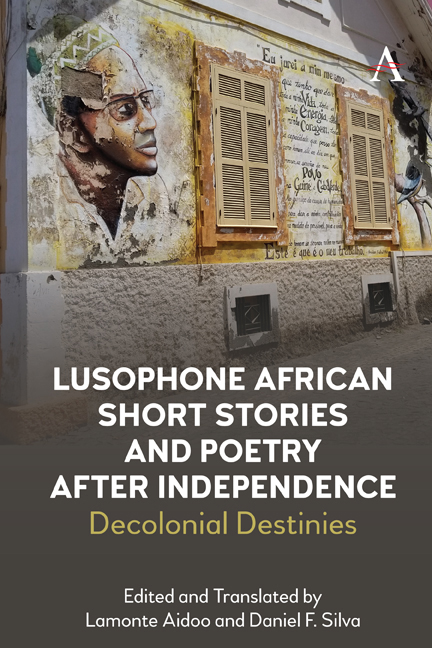Chapter 12 - Agnelo Regalla
Published online by Cambridge University Press: 23 February 2022
Summary
Introduction
Agnelo Augusto Regalla, known in the literary world by his pseudonym, Sakala, was born on July 9, 1952, in Tombali, Guinea-Bissau. While Sakala has had a significant literary impact, Regalla has also made a name for himself in Guinea-Bissauan politics, journalism, and media since the country gained its independence. He holds a bachelor's degree in journalism and founded the Guinea-Bissauan radio station, Radiodifusão Nacional in 1974 and directing it until 1977. He has also had a notable political career in postcolonial Guinea-Bissau. He was the secretary of state within the national ministry of information from 1984 to 1985, and again from 1990 to 1991. In between these stints, he was the director general within the ministry of foreign affairs between 1987 to 1990. Later in the 1990s, he served as the president of the União para a Mudança (Union for Change) party and was elected as the party deputy in Guinea-Bissau's first multiparty parliament from 1994 to 1998. From 2009 to 2012, he worked in President Malam Bacai Sanhá's cabinet as a spokesperson and communications consultant. Most recently, in 2018, Prime Minister Aristides Gomes nominated Regalla to be the president of the Council of Ministers and Parliamentary Affairs.
He has been significantly less prolific in his literary career, though impactful, nonetheless. For instance, he has never published a book that was exclusively his writing , while he has numerous pieces published across various anthologies and literary publications. The most notable of these is the collection, Mantenhas para quem luta: a nova poesia da Guiné-Bissau (Greetings to Those Who Fight: The New Poetry of Guinea-Bissau), 1977) composed of poems all engaged in different ways with the anticolonial struggle and in the broader epistemological projects of decoloniality—producing knowledge and historical discourses against those of empire. Like Regalla's most impactful poetic works, the poems found in this particular collection date back to the end of the war for independence against the Portuguese, with many that were written in the early 1970s. These poems were originally published in Greetings to Those Who Fight, with some that were reprinted in later anthologies, and they grapple with colonial power and the impact of empire on collective and individual psychic and epistemological life.
- Type
- Chapter
- Information
- Lusophone African Short Stories and Poetry after IndependenceDecolonial Destinies, pp. 147 - 152Publisher: Anthem PressPrint publication year: 2021

